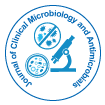

Perspective - (2024)Volume 8, Issue 2
The human microbiome, comprising trillions of microorganisms inhabiting our bodies, plays a pivotal role in maintaining health and influencing disease susceptibility. Dysbiosis, an imbalance in the microbiome composition and function, has emerged as a significant factor contributing to a wide array of health conditions. Understanding these dynamics is important for advancing therapeutic strategies and promoting overall wellbeing.
The microbiome: A complex ecosystem
The human microbiome surrounds diverse microbial communities residing predominantly in the gastrointestinal tract but also in other anatomical sites such as the skin, oral cavity, and urogenital tract. These microbial inhabitants, including bacteria, viruses, fungi, and archaea, collectively contribute to metabolic processes, immune modulation, and protection against pathogens. The composition of the microbiome is influenced by various factors, including genetics, diet, environment, and medical interventions such as antibiotics.
Dysbiosis: Disrupting the balance
Dysbiosis refers to a state where there is a disruption in the normal balance of microbial communities, leading to alterations in their diversity, abundance, and function. This imbalance can result from factors such as poor dietary habits, stress, infections, medications (especially antibiotics), and chronic diseases. Dysbiosis is increasingly recognized as a contributing factor in conditions ranging from gastrointestinal disorders like Irritable Bowel Syndrome (IBS) and Inflammatory Bowel Disease (IBD) to systemic conditions like obesity, diabetes, and even neurological disorders.
Impact on gastrointestinal health
The gut microbiome, in particular, plays a vital role in maintaining gastrointestinal health and overall well-being. A healthy gut microbiome helps digest food, synthesizes vitamins, modulates the immune system, and protects against pathogens. Dysbiosis in the gut has been linked to conditions such as diarrhea, constipation, bloating, and inflammatory conditions like Crohn's disease and ulcerative colitis. Restoring a healthy microbiome balance through dietary changes, probiotics, and Fecal Microbiota Transplantation (FMT) holds great potential as a therapeutic approach for managing these disorders.
Beyond the gut: Systemic effects of dysbiosis
Recent research has highlighted the systemic effects of dysbiosis beyond gastrointestinal health. Imbalances in the microbiome composition have been associated with metabolic disorders such as obesity and type 2 diabetes, cardiovascular diseases, autoimmune conditions like rheumatoid arthritis, and even mental health disorders including depression and anxiety. These findings underscore the interconnectedness of the microbiome with various physiological systems and the potential for microbiometargeted therapies in managing systemic diseases.
Therapeutic implications and future directions
Advancing our understanding of dysbiosis opens path for innovative therapeutic interventions aimed at restoring microbiome balance. Personalized approaches leveraging microbial profiling and metagenomic analysis hold potential in modifying treatments to individual microbial signatures. Strategies such as prebiotics, which promote the growth of beneficial microbes, and postbiotics, which harness microbial metabolites for therapeutic purposes, represent emerging frontiers in microbiome research.
Furthermore, integrating microbiome-focused interventions into clinical practice requires collaborative efforts among researchers, clinicians, and policymakers to validate efficacy, ensure safety, and establish guidelines for implementation. Longitudinal studies and large-scale clinical trials are necessary to elucidate causal relationships between dysbiosis and disease outcomes, paving the way for evidence-based microbiome therapies.
Dysbiosis represents a significant change of opinion in understanding human health and disease. The microbiome's intricate role in modulating physiological processes underscores its potential as a therapeutic target for a wide spectrum of conditions. By resolving the complexities of dysbiosis and controlling microbiome-based interventions, we can envision a future where personalized medicine integrates microbiome health into preventive and therapeutic strategies, thereby enhancing overall health and well-being across diverse populations.
Citation: Dick M (2024) Dysbiosis and Health: Microbiome Imbalances Influence Disease and Well-being. J Clin Microbiol Antimicrob. 8:191
Received: 16-May-2024, Manuscript No. JCMA-24-31987 ; Editor assigned: 20-May-2024, Pre QC No. JCMA-24-31987 (PQ); Reviewed: 04-Jun-2024, QC No. JCMA-24-31987 ; Revised: 11-Jun-2024, Manuscript No. JCMA-24-31987 (R); Published: 19-Jun-2024 , DOI: 10.35248/jcma.24.8.191
Copyright: © 2024 Dick M. This is an open-access article distributed under the terms of the Creative Commons Attribution License, which permits unrestricted use, distribution, and reproduction in any medium, provided the original author and source are credited